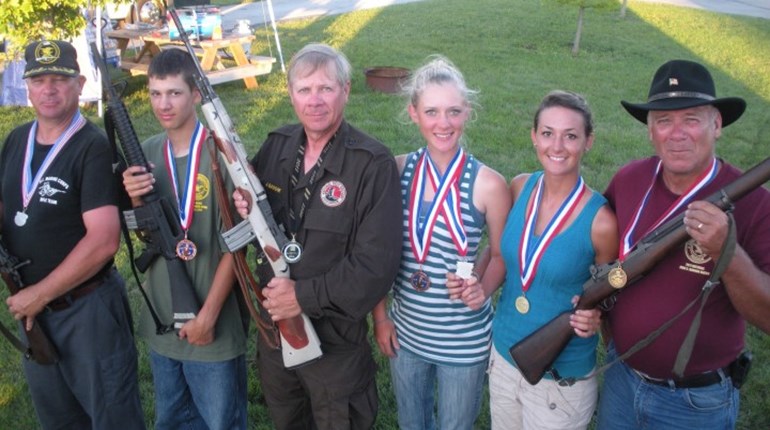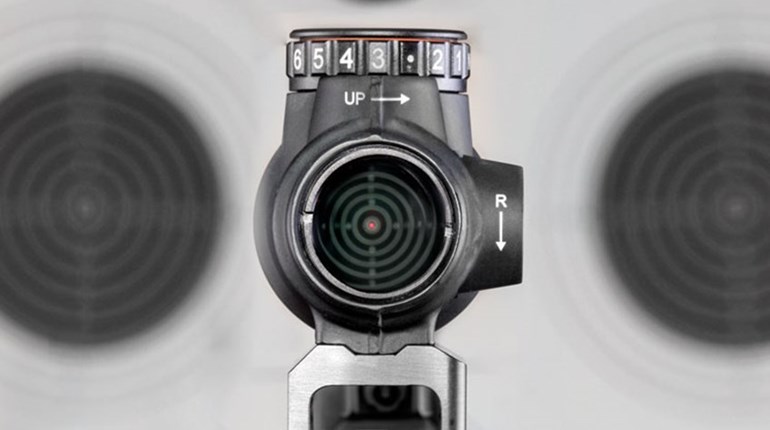
Most of the time, when a criminal has identified a potential victim, he’s going to put that victim through what we call an “interview” before he decides if he can pull off his plan against this person or not. You won’t always see this interview, but just because you’re not aware of it doesn’t mean it’s not happening. Most commonly, you will be able to tell you’re in an interview if you know what to look for and you pay attention to what’s going on around you. You definitely want to fail this interview—in other words, you want to make it clear that you are not victim material or at least you’ll be a huge hassle for the bad guy to deal with, so he’ll leave you alone and choose someone else.
Recognizing what a criminal interview looks like is a huge step to failing one—you have to know you’re in one or about to get into one so you can intentionally foil the would-be assailant’s plans. Self-defense and safety expert Marc MacYoung identifies five basic types of criminal interviews in his book, Safety Doesn’t Have to Be Scary.
1. Regular Interviews
This is by far the most common interview scenario, and the good news is that you can spot it when you’re in it or being set up for it. In a regular interview, the bad guy will use some type of normal-seeming contact with you as a way to A) get close to you without you noticing and B) gauge your personality and vulnerability. MacYoung says “Most muggings start with the words, ‘Excuse me,’ ” and that’s a prime example of how a regular interview develops: The criminal often approaches you with a question. It might be “Excuse me, do you know what time it is?” or “Do you know where the nearest bus stop is?” or “Can you spare a dollar?” or any one of a thousand things.
These are not entirely abnormal things for one stranger to ask another, so you might not think much of it. But if someone approaches you in a fringe area asking a question and getting closer to you while he does so, head’s up: He might be interviewing you.
In this interview, the criminal is initially pretending to be something he’s not. Usually, he’s just pretending to be a nice guy who needs directions. Sometimes, he’ll be the guy who comes to your house dressed as an internet repair guy or door-to-door salesman but who is secretly casing the place or looking to commit a home invasion. Don’t let those guys in your house (the internet company shouldn’t be sending someone to your house without calling you first, anyway).
2. Hot Interviews
Less common is the hot interview, where someone approaches you aggressively, possibly threatening and definitely hostile. He might literally come at you screaming to see how you react—do you jump into defense mode, or do you cower in fear? He might “accidentally” bump into you or come out of the blue with a “What are you looking at?” He might not say a word but will just knock you down and grab your stuff (in this case, he probably interviewed you earlier; you just didn’t realize it). The point is, he doesn’t start out as a nice guy and then escalate as he talks to you; he’s hostile right from the jump. He’ll probably try to be loud and intimidating as he approaches you, hoping you won’t notice that he’s closing the gap. You won’t have a lot of time to fail this interview.
You have to show immediate and deliberate intention to defend yourself when someone comes at you like that. I’m not saying drawing your gun is the right move every time a stranger confronts you, but stepping into a fighting stance, putting on your command voice, dropping your drink so your hands are free for defense, maybe moving your hand to your CCW or making other defensive moves shows that you’re not going to be an easy victim. What you don’t want to do in response to a hot interview is freeze in panic or cower in fear.
3. Silent Interviews
You won’t know this interview is happening, at least in its early stages. That doesn’t mean you can’t fail it, though. In a silent interview, the criminal is watching you before you are aware of him. He’s determining if you look vulnerable, so the way to fail this interview is to not look like easy prey.
I’m not one for “head on a swivel” lingo, but paying attention to your surroundings—not being distracted by your phone, not looking down while you walk—gives off major “I’m not a victim” vibes. Look around you while you walk, particularly through fringe areas and transition zones. You might have already spotted him before you have any idea he has bad intentions, and that alone might be enough to fail the interview.
Be especially aware of anyone moving toward your personal space. Don’t be afraid to look at people who are getting closer to you than is normal for the situation. Turning around to glance at someone who’s following you or who looks like he’s going to pass you at an uncomfortably close distance is a good idea—it lets him know you see him and you’re not some oblivious victim-in-waiting.
4. Escalating Interviews
This type of interview starts off with contact that seems relatively normal, but it becomes increasingly hostile. When a bad guy starts off with “Hi there, can I help you with those groceries?” and turns to “What, are you too good to talk to a guy like me?,” he’s escalating things and checking where your boundaries are. He’s trying to make you feel fear and confusion so he can gauge how you react, and he might throw blame or find fault in something minor as an excuse to escalate.
Robberies committed by a group of criminals often fall into this category, as do rapes—especially date rapes. He might start with an innocent compliment or touch and then, depending on how you react, go a step further and a step further with increasingly outrageous behavior. Each step you allow him to go without shutting it down only emboldens him to take the next step and the one after that, until he builds up to his crime.
Escalating interviews often take advantage of your desire to be nice and just get along with everyone. If someone accuses you of something or confronts you over a minor offense, and a simple and sincere apology does not satisfy them, beware: He might be interviewing you. Firm, enforced boundaries will help you fail this interview, and they’re best exercised early.
Prolonged Interview
As the name suggests, prolonged interviews take place over hours, days, weeks or even longer. It might take you some time to realize you’re in one. These aren’t your smash-and-grab muggers. Rather, they’re serial rapists, stalkers, domestic abusers, and con artists who plan their crimes and select their victims over time. A date rape might take hours to unfold—you think you’re on a date with a new guy, but he’s plying you with alcohol while trying to set you up for a dangerous situation at the end of the night.
“A prolonged interview is classic ‘boiling a frog,’ ” MacYoung writes. You know the analogy: Put a frog in a pot of boiling water and he’ll just jump out. But put a frog in a pot of cool water and slowly turn up the heat, and the frog will stay until he’s cooked to death. The frog didn’t recognize the danger that snuck up on him slowly.
Prolonged interviews have a similar effect. Something happens that makes you question this person who’s in your life, but then time passes and things are fine for a while and you forget about until the next weird thing happens that makes you question him again. It can take a while to recognize the pattern.
Clear boundaries are helpful for failing a prolonged interview: Don’t allow people in your life who treat you poorly, with or without excuse. Call people out when they cross a line, and remove yourself from them if they do it again. If he crosses a boundary you’ve set and you let it happen without any consequences, you’ve (unfortunately) passed the interview and identified yourself as someone he can control, manipulate or intimidate.
The other thing you have to do is recognize when the interview is coming to a close and he’s setting up the conditions for an attack. A new date encouraging you to drink more alcohol than you’re comfortable with and to come back to his place or some other isolated area is setting up the conditions for an attack. That doesn’t mean every guy who wants to get you alone is a rapist; it just means those conditions are ripe for a crime to be easily committed, and if you find yourself in any kind of setup situation with someone who’s already tested or ignored your boundaries, you very well could be in danger.











































